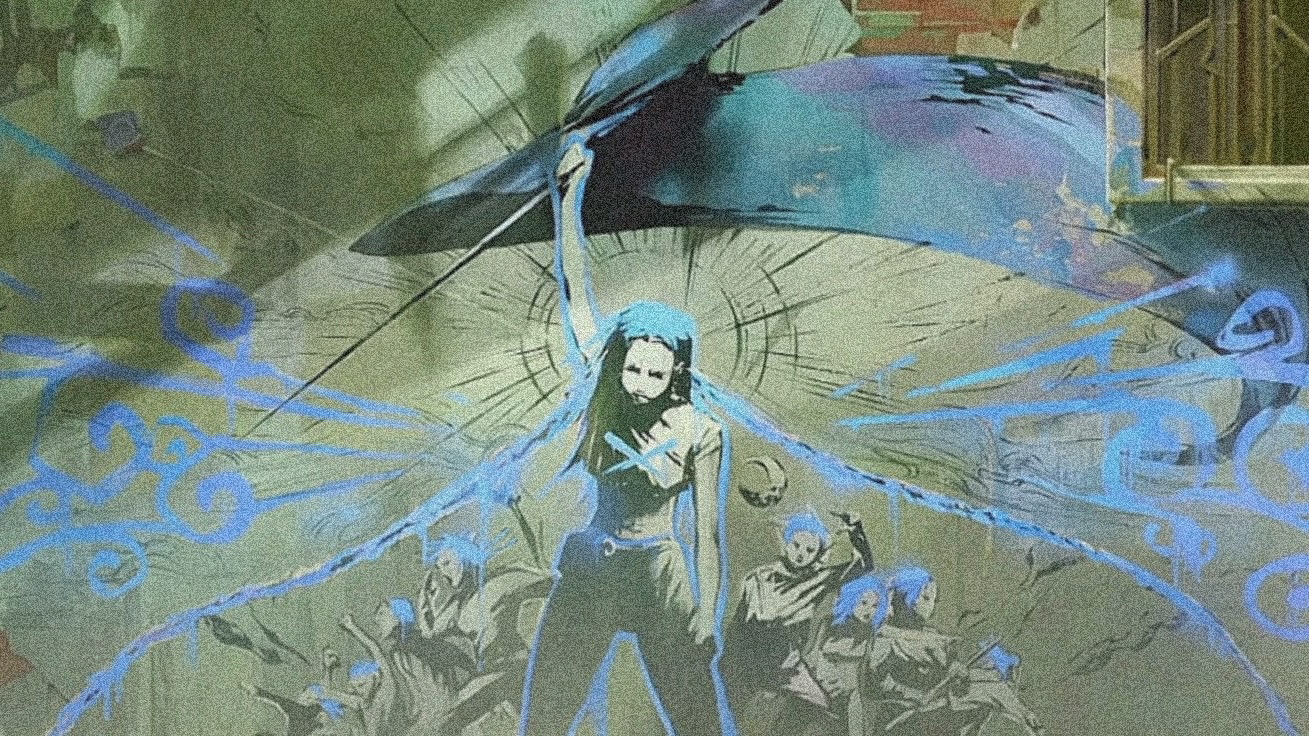
Ecology of a scene, or Why Oxford is, and always will be, a wasteland of musical creativity

Wherever you find one, a music scene manifests as a live, twitching corpus, comprised of a vital collection of enveloping and intersecting components—most of which the city of dreaming spires lacks. It is this intricate network of connections and contradictions that give a scene its life, defining and invigorating it. The absence of such diversity in Oxford’s musical ecosystem has led to the sordid, uninspiring, and frankly dull state of Oxford’s scene today.
Any given music scene has its own food chain. At the bottom, you find meagre creatures blinded by inexperience but burdened with ignorant dreams of opulent stardom, while at the top you come upon jaded nihilists too busy wallowing in ennui to create anything worthwhile. Each component is as detestable as the last, but together they make something truly beautiful.
Let’s start at the bottom of our hierarchy of beasts. Here we can find the pimple-faced buskers that line the High Street, or the start-up promoters colonising gig line-ups at independent venues. This level also includes a whole host of bedroom musicians, aspiring SoundCloud rappers, and part-time DJs relying on clichéd tropes and overused samples, resulting in hours upon hours of mind-numbingly bland music. Although it sounds like I’m filled with contempt for this musical underclass, they in fact have my utmost respect. Their unabashed ignorance and excited creation are perhaps the most unadulterated expressions of the Dionysian impulse possible. Sure, their musical output is rarely any good, but their honest—though naïve—drive to create art is the most admirable example of the transcendent possibilities of the human spirit on our entire planet.
Moving up the chain, we find the true villains of a scene: the local band. These groups of usually three-to-five privileged extroverts imagine themselves as the bedrock of the local music community but are actually its most ephemeral by-product. The lead-singer is invariably a wannabe socialite, coming off equally as pompous as nauseating while they bask in the glow of the venue’s light rig. This loathsome lot are not unlike the small-timers of the former group and can usually only be differentiated by their slightly larger ‘following’ (i.e. the flock of groaning friends and acquaintances they’ve coaxed out to their show) and their inflated sense of self-importance. Oxford certainly has a handful of these guys, but a lack of competition and the general Oxbridge arrogance means they’re either unaware or uninterested in their own ridiculousness.
This next group for consideration is that croaking mass that permeate the scene, punctuating it and giving it life: the crowd. A middling sort, often students and young professionals, they mediate a city’s musical culture, providing a cohesion that stops it from collapsing into masturbatory, ego-stroking anarchy. A simple sneer from one of this group’s veteran members can ruin a whole band’s reputation; God forbid your gig gets a negative review on a closely followed substack. They are invariably dressed in the most modern fashions, drink at the trendiest bars, and eat at the most acclaimed small-plate restaurants. They are the sheep in creative directors’ clothing that a budding artist must court.
But they’re also a brutally impetuous lot. They have no legitimacy of their own. Instead, they chew the individuality off the bones of those more relevant, regurgitating it into each other’s mouths over and over until it begins to taste too foul, at which point they move on to a fresher fashion, genre, venue, or artist. They require someone more interesting than them to emulate, follow, or tear down, or else they will simply cease to be, folding back into their bullshit-job corporate persona they use from 9-5. They also tend to be the standard entry point for all eager young music afficionados, who will soon be educated in the arcane lore of their city’s musical community.
Just like any truly good map—think the brown-tinted cartographies from the age of exploration—our illustration of the modern music scene includes the dark and murky areas where pirates and monsters reside. Hidden in derelict remains of the post-industrial wasteland, squatting in abandoned tenements or cheap rehearsal rooms, another presence haunts the scene. I am of course speaking of the punks of the DIY movement. Caked in varying degrees of makeup and dirt (the gender spectrum of the DIY community, if you will), they cut across the pyramid, flagrantly denouncing its inherent hierarchies and structures. This ardent political radicalism often results in positive changes in the industry, such as low-income and disability accessible shows that either reinvest profit into the local scene or provide for charities. Unfortunately for everyone involved, their musical output is almost always unlistenable.
At top of the pyramid, we have the geezers. These are the careerists, the 30-plus’s who’ve managed to scrape a living together working in the famously ruthless music industry, and they’ve got the scars to prove it. Venue owners, long-time promoters, respected producers, and established bands who emerged from the local gig circuit. They have both the influence and resources to cultivate lively, interesting, and forward-looking creative cultures in their cities. But in a disastrous and entirely predictable turn of events, the corrupting forces of capitalism usually win out. As they say in the States: “the dollar, like, rules man.” So, in most cases the local scene remains local while its most vapid, wet cardboard, acetone-scented products are given a golden shower of acclaim and success.
But a scene is more than just the people who make it up: it is the logical expansion of a place. The blood of a music scene is drawn from its stones, and the sandstone of Glasgow makes a different sound than the limestone of Paris when you hit it hard with a hammer. Just like any ecosystem, each cultural habitat has its own unique set of critters and creatures. For example, at a London gig you’re likely to see a generous gathering of Salomon trainers and colourful scarves, whereas in Berlin an industrial combination of black leather and terrible haircuts reign supreme. Though it may seem as if these are merely surface level differences, the fashion sensibility of a scene becomes its fundamental statement of identity. If you were to naïvely assume that it was music that epitomised a given community’s character, you would be wrong. The music doesn’t actually matter much at all. It’s all about representation.
This is all to make the asinine and obvious point that a scene is tied to both a people and a place. A scene is a living thing. It eats, it shits, sometimes vomits, and often morphs into a new form entirely. It arises just when it’s supposed to—when it is needed but never when it’s wanted. You can look for a scene in a city’s architecture, or under the roof of its murkiest pubs, but you won’t find it there. You can only see it if you let yourself be devoured by it. You must become enveloped in its folds, getting lost in it like a bedsheet that just won’t fit the duvet.
Now, here’s the thing about Oxford. Put bluntly, this city is filled to the brim with boring cunts. Boring, pretentious, self-absorbed, conniving, individualistic, cunts. And even though there’s a few good venues and record shops, they feel like relics of an older, more fruitful time. Maybe the lack of a scene stems from some fundamental issue with the city’s bones; I shudder in terror imagining the sounds that would leak from Christ Church’s halls if you squeezed them hard enough.
But the issue that’s really been driving me nuts since I arrived here is this. Other artforms in the city—theatre, visual arts, and literature—all regularly pump out decent talent. So, why don’t we have any decent, or even decently original, musicians? I think by reading through the lines of the ecosystem outlined above, we can see why.
A music scene, unlike any of those other art forms, requires a much higher degree of self-effacement that Oxford students are not capable of. Enjoying a play, a piece of abstract art, or an esoteric essay on medieval literature all communicate the kind of intangible symbols of intellectualism and respectability that Oxonians relish. Going to a local gig, however, is not quite as glamorous. Instead, endless hordes of cover bands and jazz groups form the ambient background noise to the decadent disavowal of music’s divine potential. If you don’t see the value in original music as an artform, why devote yourself, why care?
Each repugnant element of a scene, from the pretentious posers to the wannabe superstars, come together to make a sublime whole. But Oxford students, not seeing the wood for the trees, refuse to debase themselves, to put themselves through the humiliation rituals required for entry into the musical hierarchy. A scene needs shit musicians, pompous critics, and small-time imitators. And it absolutely needs more stages than currently on offer in Oxford, more places for creativity to be explored, not necessarily without judgement (where would be the fun in that) but without barriers to entry. A scene requires people willing to experience the embarrassment of a creaking voice or a missed cue, and an audience that is okay with not demanding that every note be perfectly in tune or that every song sound like one they’ve heard before.
Hopefully someone can prove me wrong, but I just can’t see it happening here. Nevertheless, the failure of Oxford’s music scene needs to be pointed out, discussed, and an effort needs to be made to fix the city’s ills. Without it, we’ll continue to watch excruciatingly vapid musical acts emerge from the vacuum, and gain both an idealistic valuation of their own excellence and a bloated following purely based on their lack of competition.
If it sounds like I’m trying to put down potential musicians, it’s because I am, but that doesn’t mean they should stop playing. Without viciousness, all art becomes placid, and without the risk of failure, nothing new will be made. So, keep tearing each other down, keep forcing your friends to listen to the terrible song you wrote at 3am, and keep writing pretentious reviews of local music for student magazines: it’s the only way to show you’re devoted.
P.S. Stop charging so much for in-college live music events you greedy fucking twats.∎
Words by Cameron Bilsland. Image courtesy of… Cameron Bilsland.







